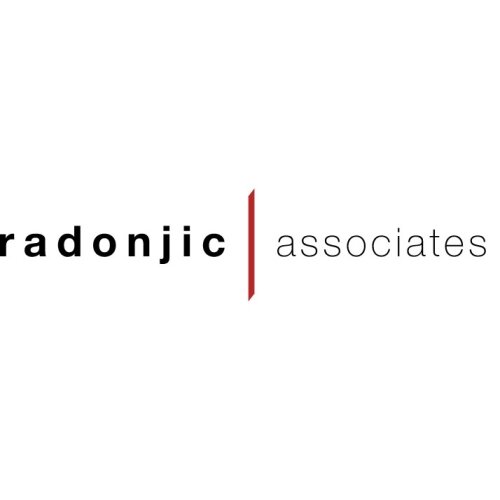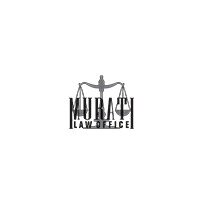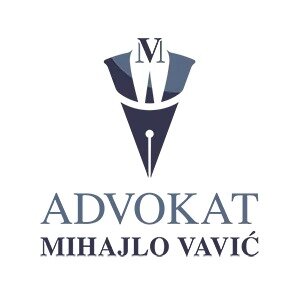Best Faith-Based Law Lawyers in Montenegro
Share your needs with us, get contacted by law firms.
Free. Takes 2 min.
Or refine your search by selecting a city:
List of the best lawyers in Montenegro
About Faith-Based Law in Montenegro
Faith-Based Law in Montenegro refers to the legal practices and policies that intersect with religious beliefs and communities within the country. Montenegro, being a secular state, acknowledges the influence of various religions while maintaining a separation of church and state. This area of law often involves dealing with issues pertaining to religious institutions, religious practices and the way they interact with civil laws. The legal framework provides religious communities with the freedom to practice their beliefs, while also ensuring that these practices adhere to national laws and regulations.
Why You May Need a Lawyer
Individuals or organizations might seek legal advice in Faith-Based Law for several reasons. Some common situations include resolving disputes related to religious property, dealing with conflicting religious practices and civil law, navigating employment issues within religious institutions, or addressing alleged religious discrimination. Additionally, individuals or entities might require guidance on how to establish or operate a religious organization in compliance with Montenegro’s legal requirements.
Local Laws Overview
In Montenegro, the constitution ensures freedom of religion while specifying that religious communities must register with the government to obtain legal status. Religious freedom is supported, but it must not violate public safety, health, morals, or the fundamental rights and freedoms of others. Legal provisions also cover the establishment, internal governance, financial operations, and property rights of religious institutions. Furthermore, specific laws guide the protection of cultural and historical heritage, which often involves religious sites.
Frequently Asked Questions
What is the process for registering a religious community in Montenegro?
Religious communities must submit an application to the Ministry of Justice, including statutes, evidence of headquarters, and information about religious leaders. Registration grants legal status but requires adherence to local laws and regulations.
Can religious communities own property in Montenegro?
Yes, registered religious communities can own property. However, they must comply with national laws regarding property registration and taxation.
How does Montenegro handle religious discrimination cases?
Cases of religious discrimination are handled under anti-discrimination laws. Individuals can file complaints with relevant authorities, and legal action can be pursued if necessary.
Is religious education allowed in Montenegro’s public schools?
Religious education is not part of the standard curriculum in public schools. However, religious communities can offer education through private institutions.
What rights do employees have in faith-based organizations?
Employees in faith-based organizations are protected under labor laws, though organizations may establish certain criteria based on religious beliefs for specific roles.
Are there restrictions on religious symbols in public places?
The display of religious symbols is generally permitted, but may be restricted in government buildings or during state functions to maintain neutrality.
Can religious organizations conduct marriages recognized by the state?
Yes, religious organizations can conduct ceremonies, but couples must also have a civil marriage registration for it to be legally recognized.
What is the legal stance on censorship of religious materials?
Montenegro supports freedom of expression, but materials that incite hate or violence can be censored under national security laws.
How are interfaith marriages treated legally?
Interfaith marriages are legally recognized, but individuals should be aware of potential religious and cultural considerations.
Can international religious organizations operate in Montenegro?
Yes, but they must comply with both registration requirements and national laws applicable to foreign entities.
Additional Resources
For anyone seeking further information or assistance, the Ministry of Justice in Montenegro provides resources and guidance on religious community law. The Constitutional Court can be approached for issues relating to constitutional rights and freedoms. Additionally, organizations such as the Human Rights Ombudsman and the Center for Democracy and Human Rights offer support regarding religious freedom and discrimination issues.
Next Steps
If you require legal assistance in the field of Faith-Based Law, consider consulting a lawyer who specializes in this area. Legal professionals can provide specific advice and help navigate complex legal processes. You can also reach out to local bar associations for recommendations on lawyers experienced in Faith-Based Law. Preparing documentation and an outline of your situation can expedite and enhance your consultation, enabling the lawyer to provide more targeted advice.
Lawzana helps you find the best lawyers and law firms in Montenegro through a curated and pre-screened list of qualified legal professionals. Our platform offers rankings and detailed profiles of attorneys and law firms, allowing you to compare based on practice areas, including Faith-Based Law, experience, and client feedback.
Each profile includes a description of the firm's areas of practice, client reviews, team members and partners, year of establishment, spoken languages, office locations, contact information, social media presence, and any published articles or resources. Most firms on our platform speak English and are experienced in both local and international legal matters.
Get a quote from top-rated law firms in Montenegro — quickly, securely, and without unnecessary hassle.
Disclaimer:
The information provided on this page is for general informational purposes only and does not constitute legal advice. While we strive to ensure the accuracy and relevance of the content, legal information may change over time, and interpretations of the law can vary. You should always consult with a qualified legal professional for advice specific to your situation.
We disclaim all liability for actions taken or not taken based on the content of this page. If you believe any information is incorrect or outdated, please contact us, and we will review and update it where appropriate.
Browse faith-based law law firms by city in Montenegro
Refine your search by selecting a city.










